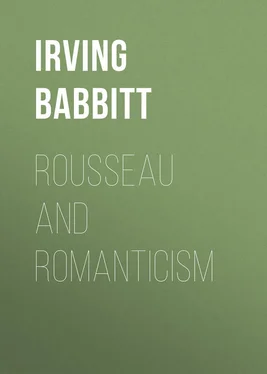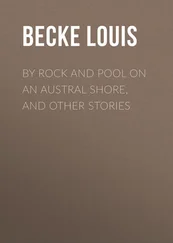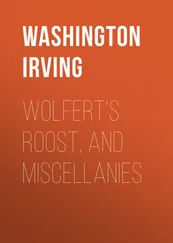Irving Babbitt - Rousseau and Romanticism
Здесь есть возможность читать онлайн «Irving Babbitt - Rousseau and Romanticism» — ознакомительный отрывок электронной книги совершенно бесплатно, а после прочтения отрывка купить полную версию. В некоторых случаях можно слушать аудио, скачать через торрент в формате fb2 и присутствует краткое содержание. Жанр: foreign_antique, foreign_prose, на английском языке. Описание произведения, (предисловие) а так же отзывы посетителей доступны на портале библиотеки ЛибКат.
- Название:Rousseau and Romanticism
- Автор:
- Жанр:
- Год:неизвестен
- ISBN:нет данных
- Рейтинг книги:5 / 5. Голосов: 1
-
Избранное:Добавить в избранное
- Отзывы:
-
Ваша оценка:
- 100
- 1
- 2
- 3
- 4
- 5
Rousseau and Romanticism: краткое содержание, описание и аннотация
Предлагаем к чтению аннотацию, описание, краткое содержание или предисловие (зависит от того, что написал сам автор книги «Rousseau and Romanticism»). Если вы не нашли необходимую информацию о книге — напишите в комментариях, мы постараемся отыскать её.
Rousseau and Romanticism — читать онлайн ознакомительный отрывок
Ниже представлен текст книги, разбитый по страницам. Система сохранения места последней прочитанной страницы, позволяет с удобством читать онлайн бесплатно книгу «Rousseau and Romanticism», без необходимости каждый раз заново искать на чём Вы остановились. Поставьте закладку, и сможете в любой момент перейти на страницу, на которой закончили чтение.
Интервал:
Закладка:
It was also largely under French influence that the doctrine of decorum, which touches probability at many points, was turned aside from its true meaning. Decorum is in a way the peculiar doctrine of the classicist, is in Milton’s phrase “the grand masterpiece to observe.” The doctrines of the universal and the imitation of the universal go deeper indeed than decorum, so much deeper that they are shared by classicism with religion. The man who aspires to live religiously must no less than the humanist look to some model set above his ordinary self and imitate it. But though the classicist at his best meditates, he does not, like the seeker after religious perfection, see in meditation an end in itself but rather a support for the mediatory virtues, the virtues of the man who would live to the best advantage in this world rather than renounce it; and these virtues may be said to be summed up in decorum. For the best type of Greek humanist, a Sophocles let us say, decorum was a vital and immediate thing. But there enters into decorum even from the time of the Alexandrian Greeks, and still more into French neo-classical decorum, a marked element of artificiality. The all-roundness and fine symmetry, the poise and dignity that come from working within the bounds of the human law, were taken to be the privilege not of man in general but of a special social class. Take for instance verbal decorum: the French neo-classicists assumed that if the speech of poetry is to be noble and highly serious it must coincide with the speech of the aristocracy. As Nisard puts it, they confused nobility of language with the language of the nobility. Decorum was thus more or less merged with etiquette, so that the standards of the stage and of literature in general came to coincide, as Rousseau complains, with those of the drawing-room. More than anything else this narrowing of decorum marks the decline from the classic to the pseudo-classic, from form to formalism.
While condemning pseudo-decorum one should remember that even a Greek would have seen something paradoxical in a poem like Goethe’s “Hermann und Dorothea” and its attempt to invest with epic grandeur the affairs of villagers and peasants. After all, dignity and elevation and especially the opportunity for important action, which is the point on which the classicist puts prime emphasis, are normally though not invariably associated with a high rather than with a mean social estate. In general one should insist that the decorum worked out under French auspices was far from being merely artificial. The French gentleman ( honnête homme ) of the seventeenth century often showed a moderation and freedom from over-emphasis, an exquisite tact and urbanity that did not fall too far short of his immediate model, Horace, and related him to the all-round man of the Greeks (καλὸς κἀγαθός). To be sure an ascetic Christian like Pascal sees in decorum a disguise of one’s ordinary self rather than a real curb upon it, and feels that the gap is not sufficiently wide between even the best type of the man of the world and the mere worldling. One needs, however, to be very austere to disdain the art of living that has been fostered by decorum from the Greeks down. Something of this art of living survives even in a Chesterfield, who falls far short of the best type of French gentleman and reminds one very remotely indeed of a Pericles. Chesterfield’s half-jesting definition of decorum as the art of combining the useful appearances of virtue with the solid satisfactions of vice points the way to its ultimate corruption. Talleyrand, who marks perhaps this last stage, was defined by Napoleon as “a silk stocking filled with mud.” In some of its late exemplars decorum had actually become, as Rousseau complains, the “mask of hypocrisy” and the “varnish of vice.”
One should not however, like Rousseau and the romanticists, judge of decorum by what it degenerated into. Every doctrine of genuine worth is disciplinary and men in the mass do not desire discipline. “Most men,” says Aristotle, “would rather live in a disorderly than in a sober manner.” But most men do not admit any such preference – that would be crude and inartistic. They incline rather to substitute for the reality of discipline some art of going through the motions. Every great doctrine is thus in constant peril of passing over into some hollow semblance or even, it may be, into some mere caricature of itself. When one wishes therefore to determine the nature of decorum one should think of a Milton, let us say, and not of a Talleyrand or even of a Chesterfield.
Milton imitated the models, like any other neo-classicist, but his imitation was not, in Joubert’s phrase, that of one book by another book, but of one soul by another soul. His decorum is therefore imaginative; and it is the privilege of the imagination to give the sense of spaciousness and infinitude. On the other hand, the unimaginative way in which many of the neo-classicists held their main tenets – nature, imitation, probability, decorum – narrowed unduly the scope of the human spirit and appeared to close the gates of the future. “Art and diligence have now done their best,” says Dr. Johnson of the versification of Pope, “and what shall be added will be the effort of tedious toil and needless curiosity.” Nothing is more perilous than thus to seem to confine man in some pinfold; there is something in him that refuses to acquiesce in any position as final; he is in Nietzsche’s phrase the being who must always surpass himself. The attempt to oppose external and mechanical barriers to the freedom of the spirit will create in the long run an atmosphere of stuffiness and smugness, and nothing is more intolerable than smugness. Men were guillotined in the French Revolution, as Bagehot suggests, simply because either they or their ancestors had been smug. Inert acceptance of tradition and routine will be met sooner or later by the cry of Faust: Hinaus ins Freie!
Before considering the value of the method chosen by Rousseau and the romanticists for breaking up the “tiresome old heavens” and escaping from smugness and stuffiness, one should note that the lack of originality and genius which they lamented in the eighteenth century – especially in that part of it known as the Enlightenment – was not due entirely to pseudo-classic formalism. At least two other main currents entered into the Enlightenment: first the empirical and utilitarian current that goes back to Francis Bacon, and some would say to Roger Bacon; and secondly the rationalistic current that goes back to Descartes. English empiricism gained international vogue in the philosophy of Locke, and Locke denies any supersensuous element in human nature to which one may have access with the aid of the imagination or in any other way. Locke’s method of precise naturalistic observation is in itself legitimate; for man is plainly subject to the natural law. What is not truly empirical is to bring the whole of human nature under this law. One can do this only by piecing out precise observation and experiment with dogmatic rationalism. One side of Locke may therefore be properly associated with the father of modern rationalists, Descartes. The attempt of the rationalist to lock up life in some set of formulæ produces in the imaginative man a feeling of oppression. He gasps for light and air. The very tracing of cause and effect and in general the use of the analytical faculties – and this is to fly to the opposite extreme – came to be condemned by the romanticists as inimical to the imagination. Not only do they make endless attacks on Locke, but at times they assail even Newton for having mechanized life, though Newton’s comparison of himself to a child picking up pebbles on the seashore would seem to show that he had experienced “the feeling infinite.”
Читать дальшеИнтервал:
Закладка:
Похожие книги на «Rousseau and Romanticism»
Представляем Вашему вниманию похожие книги на «Rousseau and Romanticism» списком для выбора. Мы отобрали схожую по названию и смыслу литературу в надежде предоставить читателям больше вариантов отыскать новые, интересные, ещё непрочитанные произведения.
Обсуждение, отзывы о книге «Rousseau and Romanticism» и просто собственные мнения читателей. Оставьте ваши комментарии, напишите, что Вы думаете о произведении, его смысле или главных героях. Укажите что конкретно понравилось, а что нет, и почему Вы так считаете.












